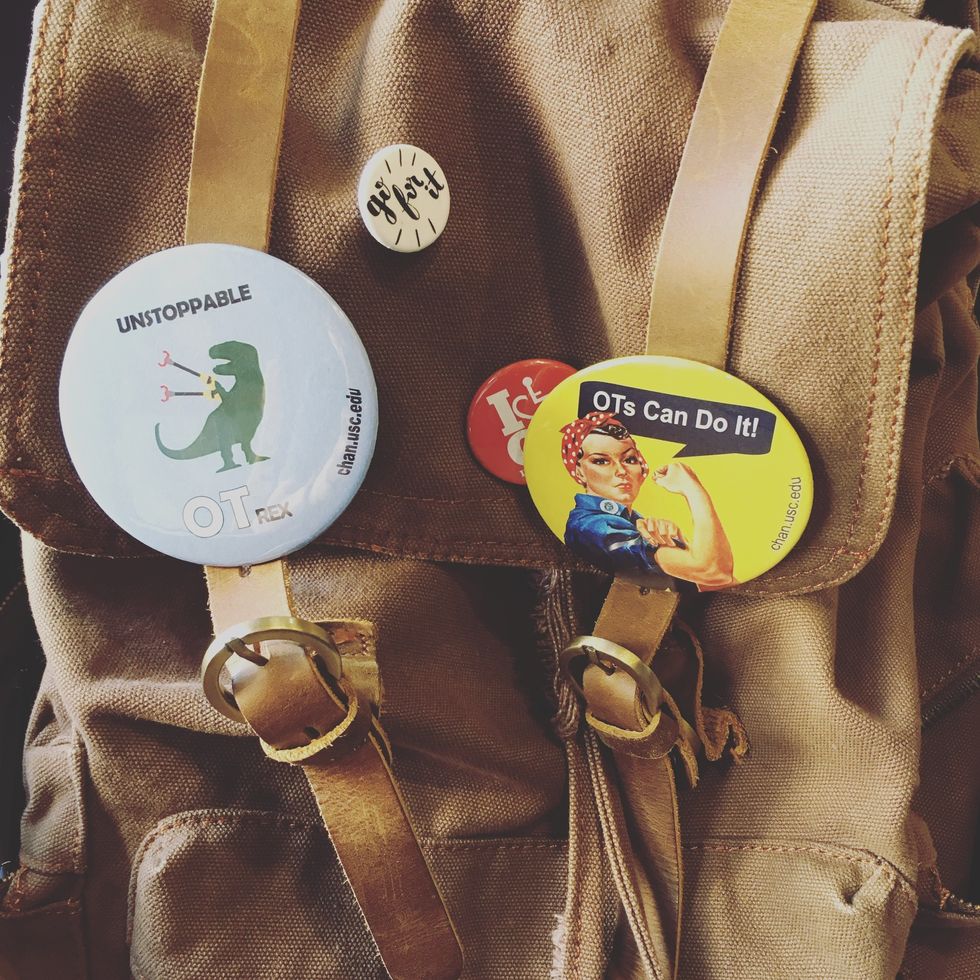If you don't already know, I am a senior in the Bachelor's to Master's program for occupational therapy at University of Southern California. I know I know, that's a really long name, which is why I'm going to write an entire blog post to tell you what the heck it all means!
- "Does OT help people find jobs?"
- "Is it like physical therapy?"
- "Is it like psychological therapy?"
These are the most common responses I heard, when I told people I'm an OT student. Guess what, the answer to all these questions are "NO" (shocker!). But here's my 3-min elevator speech explaining OT to someone who's never heard of it:
Occupational therapy helps people to overcome/manage anything that's preventing them from engaging in meaningful activities, so that they can live a meaningful life. And meaningful activities (aka. occupation) can be anything that's important to you. For example, taking shower by yourself, walking to school for classes.
An example of OT would be, if a dancer had a car accident and broke his leg, as occupational therapists, we might help him utilize dance element (because it's something important to him) to recover from the injury and regain control of his leg. If he lost the leg altogether, then we help him either find another meaningful occupation to engage in or figure out another way to dance (e.g., maybe dancing in a wheelchair).
Now, let's get back to the three questions at the beginning of this post:
- "Does OT help people find jobs?"
- No, but finding job for someone can be part of occupational therapy, if this is considered a meaningful activity by someone. For instance, a young adult with developmental disabilities might want to find a job and be independent.
- "Is it like physical therapy?"
- Not really, physical therapy is more focused on the physical recovery of the human body (e.g., if this injured arm can regain a normal range of motion), while occupational therapy is more focused on whether people can (re)engage in meaningful activities (e.g., can a dander go back to dancing after a leg surgery).
- "Is it like psychological therapy?"
- No, even though occupational therapy does address the psychological aspect, it is not the focus of OT. Psychological therapy is more focused on "fixing" the mental issues, while OT is more focused on how to engage in activities despite of mental issues or to prevent relapse.
Of course, these are very simple answers. I am, by no means, saying these are comprehensive or flawless, but they should give you a general notion as to what OT is and what OT does. If you want to learn about OT in more details, here's an explanation laid out by the American Occupational Therapy Association.
Finally, here's one of my favorite quotes that captures the essence of OT: "Occupation as ends; occupation as means" (Dr. Julie McLaughlin Gray).
If you are not an OT/OT student, I hope this post helped you understand it a little bit more. If you are an OT/OT student, I hope this post gave you some inspiration as to how to explain it to others.

















